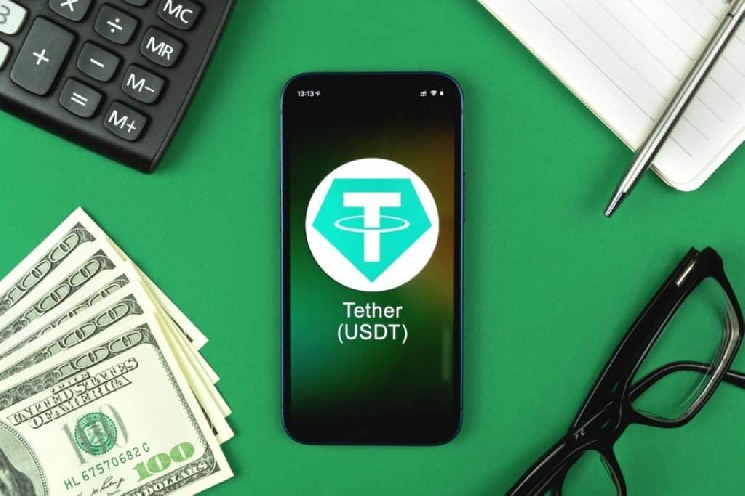Tether restarts from the bankruptcy of FTX

Tether restores confidence among investors by ceasing lending activities but more importantly calming everyone about hedges by avoiding the problems FTX had run into.
Coinbase is pushing its users to convert USDT, the stablecoin issued by Tether, into USD Coin (USDC), a stablecoin issued by Circle and linked to the dollar.
According to the exchange, since the collapse of FTX, USD Coin is the most desirable stablecoin for exchanges, and to encourage its use, it has zeroed the fees for conversion on its platform.
“We believe USD Coin (USDC) is a reliable stablecoin so we are making the switch easier: Starting today, we are waiving fees for retail customers who want to convert USDT to USDC.”
Last month we witnessed the biggest-ever scam in the cryptocurrency industry by Sam Bankman-Fried, who through his fraudulent leadership at the helm of the giant FTX brought down part of the market and contaminated several companies in addition to causing investors to lose millions of dollars.
Crashes like this one but also the other major collapses such as those triggered by the failure of Terra Luna and Three Arrows Capital, all of which happened in 2022 make this year the worst year ever for user confidence in crypto and blockchain.
However, the future holds better times ahead, and this year with all its woes will serve as a watershed between what brings value to the market and what is junk, a natural skimming of companies that goes through a bloodbath and the risk of an overly stringent rush to regulation but which aimlessly constitutes a necessary transition.
Tether maintains its dominance after FTX’s collapse
Tether reacts with momentum to Coinbase’s move by proving them wrong.
“Tether announces that effective today and through 2023, it will reduce secured loans in Theter reserves to zero.”
With this statement, in a move toward transparency, the company seeks to restore consumer confidence by circumventing the FUD that hovers in the crypto world.
The practice of lending funds at the moment is under the spotlight and is harboring dangers, and despite the fact that the company has repeatedly reiterated in the past that its loans are secured by even more collateral than the amounts, it has opted to cease lending.
The decision was made also and not only in response to the doubts raised by the Financial Times about the hedges of the loans granted by Tether to private individuals, which according to the newspaper would have dubious hedges.
“The company may not have enough liquid assets to pay repayments in the event of a crisis.”
The leading US financial magazine had reported.
In spite of the FTX meltdown and all the related crashes and contagions, the industry is moving into a phase of greater consumer protection, and this does far more than any countermeasure as the change of pace and the run to add collateral is felt by investors who are slowly regaining confidence.






 Bitcoin
Bitcoin  Ethereum
Ethereum  Tether
Tether  USDC
USDC  TRON
TRON  Dogecoin
Dogecoin  Cardano
Cardano  Monero
Monero  Bitcoin Cash
Bitcoin Cash  Chainlink
Chainlink  LEO Token
LEO Token  Stellar
Stellar  Zcash
Zcash  Litecoin
Litecoin  Hedera
Hedera  Dai
Dai  Cronos
Cronos  OKB
OKB  Tether Gold
Tether Gold  Ethereum Classic
Ethereum Classic  KuCoin
KuCoin  Cosmos Hub
Cosmos Hub  Gate
Gate  Algorand
Algorand  VeChain
VeChain  Dash
Dash  Stacks
Stacks  Tezos
Tezos  TrueUSD
TrueUSD  IOTA
IOTA  Decred
Decred  Theta Network
Theta Network  Basic Attention
Basic Attention  NEO
NEO  Synthetix
Synthetix  Qtum
Qtum  Ravencoin
Ravencoin  0x Protocol
0x Protocol  DigiByte
DigiByte  Zilliqa
Zilliqa  Nano
Nano  Siacoin
Siacoin  Holo
Holo  Numeraire
Numeraire  Waves
Waves  Ontology
Ontology  Status
Status  Enjin Coin
Enjin Coin  Hive
Hive  BUSD
BUSD  Pax Dollar
Pax Dollar  Lisk
Lisk  Steem
Steem  Huobi
Huobi  OMG Network
OMG Network  Bitcoin Gold
Bitcoin Gold  NEM
NEM  Augur
Augur  Bitcoin Diamond
Bitcoin Diamond